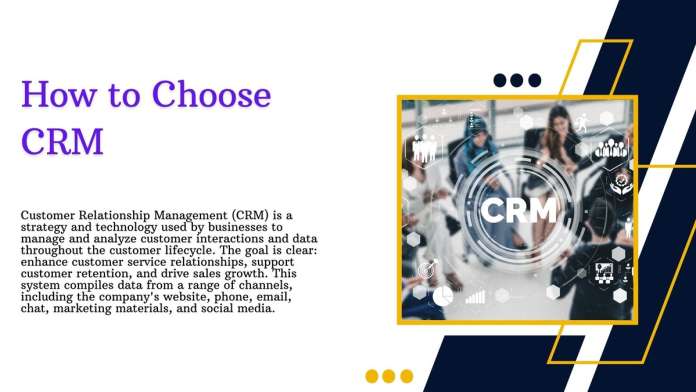Customer Relationship Management (CRM) is a strategy and technology used by businesses to manage and analyze customer interactions and data throughout the customer lifecycle. To choose the Perfect CRM tool the goal should be clear: enhance customer service relationships, support customer retention, and drive sales growth. This system compiles data from a range of channels, including the company’s website, phone, email, chat, marketing materials, and social media.
CRM: Streamlining Customer Management:
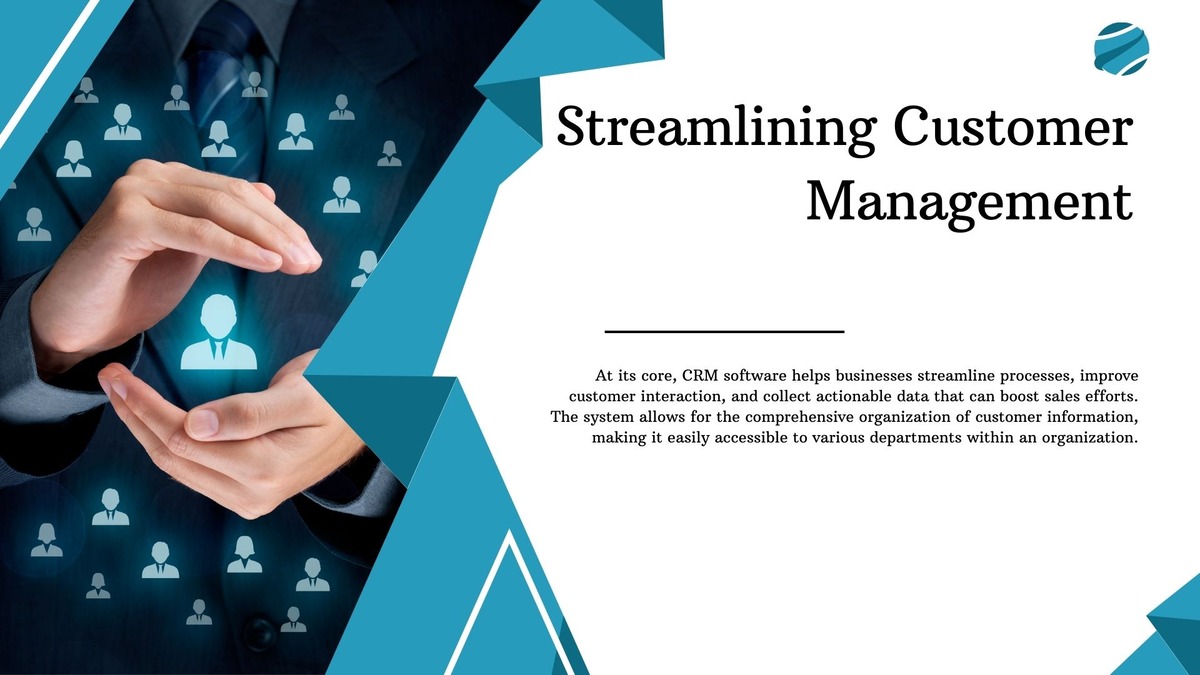
At its core, CRM software helps businesses streamline processes, improve customer interaction, and collect actionable data that can boost sales efforts. The system allows for the comprehensive organization of customer information, making it easily accessible to various departments within an organization.
-
Enhancing Customer Interaction
CRM isn’t just a high-tech address book; it can house detailed information about clients’ purchase histories, preferences, and feedback, enabling more personalized and efficient service. Essentially, a CRM system helps your team stay connected with customers and streamline processes so that everyone—sales, marketing, customer service—has easy access to the same information.
-
Centralized Customer Data:
Imagine your business has dozens, hundreds, or even thousands of customers. Manually keeping tabs on all this data would be a logistical nightmare. A CRM acts as the central hub for all this information, providing an organized system that reduces the chaos, allowing for more strategic decision-making and maintaining valuable long-term customer relationships.
In summary, CRM is the backbone of effective customer management for modern businesses, bridging the gap between data and actionable insights, all of which work together to ensure a seamless, personalized customer experience.
The Importance of CRM in Modern Business
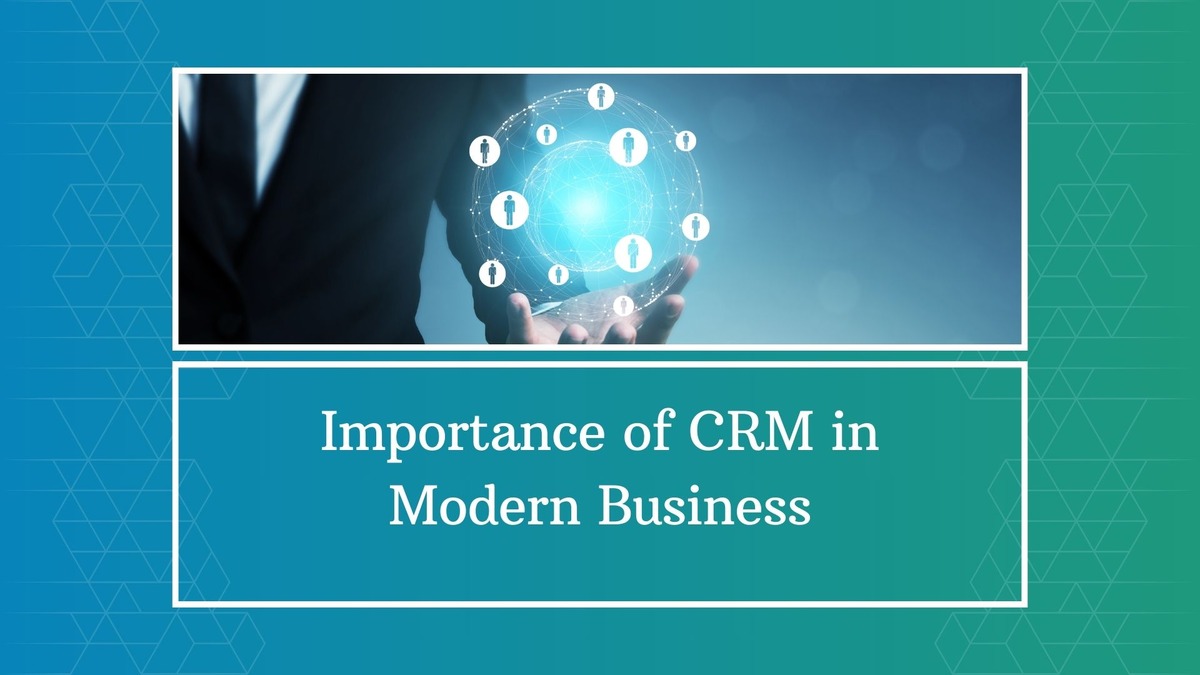
Customer Relationship Management (CRM) has emerged as a vital tool in the dynamic landscape of modern business. With an increasingly competitive market, keeping customers engaged is more challenging and essential than ever. This is where a CRM system steps in, offering a structured way to manage customer interactions and streamline processes.
-
Understanding the Customer:
First and foremost, understanding your customers is key to providing excellent service. A CRM system centralizes all customer information, from purchase history to customer feedback, enabling businesses to better understand and anticipate customer needs. This deep insight allows for more personalized communication, fostering stronger relationships and loyalty.
-
Boosting Productivity:
A CRM also significantly boosts productivity. By automating routine tasks such as data entry, follow-up reminders, and sales tracking, CRM systems free up valuable time for employees to focus on more strategic activities. This leads to improved efficiency and helps sales teams hit their targets more consistently.
-
Enhancing Team Collaboration:
Moreover, a CRM system enhances collaboration within an organization. When customer data is accessible to all relevant teams—sales, marketing, customer support—everyone is on the same page, leading to more cohesive efforts and better customer experiences. This level of coordination can be critical for delivering timely responses and solutions to customer inquiries.
-
Providing Analytics and Reporting:
In addition, a good CRM provides valuable analytics and reporting tools. These features help businesses gauge the effectiveness of their strategies, identify trends, and make informed decisions based on data rather than intuition. This can ultimately lead to more informed business strategies and better market adaptation.
In summary, a CRM system is more than just a technology; it’s a strategy for building lasting customer relationships, improving business processes, and driving sustainable growth.
Core Benefits of Using a CRM System:
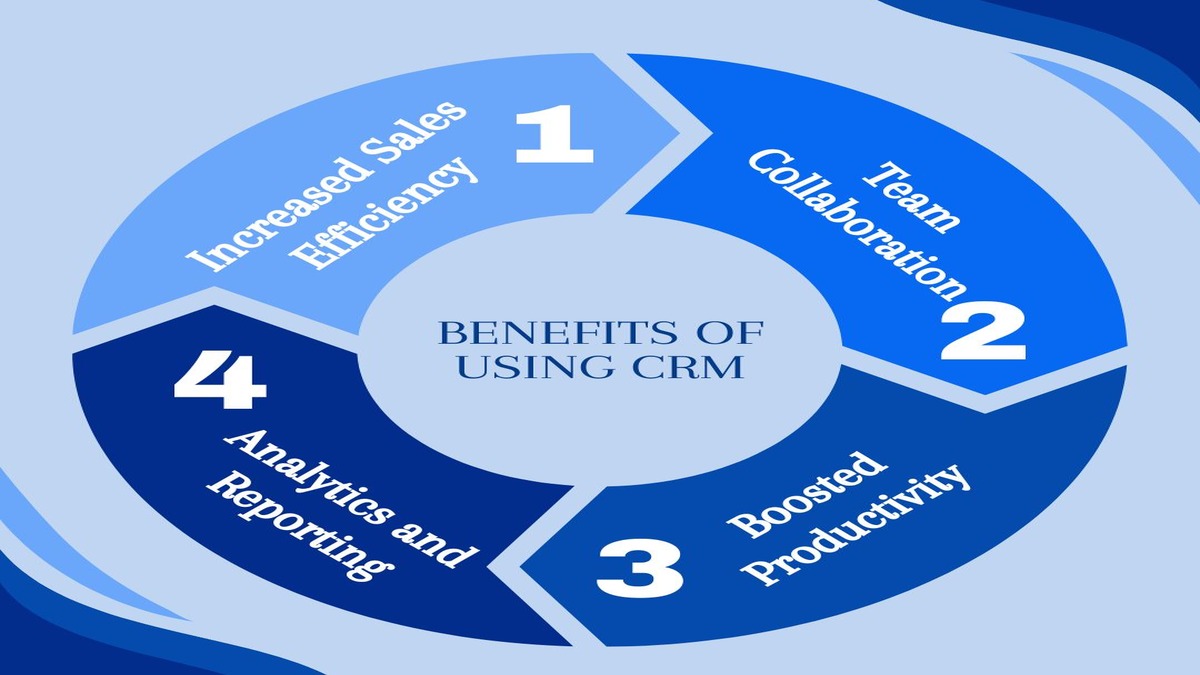
Customer Relationship Management (CRM) systems have become essential tools for modern businesses, offering a plethora of benefits that can streamline operations and enhance customer satisfaction. One of the most significant advantages is improved customer relationships. By centralizing customer data, a CRM system allows businesses to understand their clients better, anticipate their needs, and personalize interactions.
-
Increased Sales Efficiency
Another pivotal benefit is increased sales efficiency. A CRM system provides sales teams with invaluable insights into customer behavior, preferences, and purchasing history, enabling them to prioritize leads and close deals more effectively. Coupled with automated follow-ups and reminders, this results in a more organized and proactive approach to sales.
-
Enhanced Team Collaboration
Enhanced team collaboration is also a key benefit. CRM systems offer a single platform where marketing, sales, and customer service teams can access up-to-date information, ensuring everyone is on the same page. This integration minimizes miscommunication and allows for a seamless customer experience.
-
Boosted Productivity
In addition, CRMs can boost overall productivity. Automated tasks such as data entry, appointment scheduling, and follow-up emails allow team members to focus on more strategic activities. This not only saves time but also reduces the likelihood of human error.
-
Detailed Analytics and Reporting
Finally, detailed analytics and reporting features are invaluable. CRMs can generate comprehensive reports on sales performance, customer service metrics, and more. These insights facilitate data-driven decision-making, helping businesses refine their strategies and achieve better outcomes.
In summary, the core benefits of using a CRM system—improved customer relationships, increased sales efficiency, enhanced team collaboration, boosted productivity, and detailed analytics—make it an indispensable tool for any business aiming to thrive in today’s competitive landscape.
Types of CRM: Operational, Analytical, and Collaborative
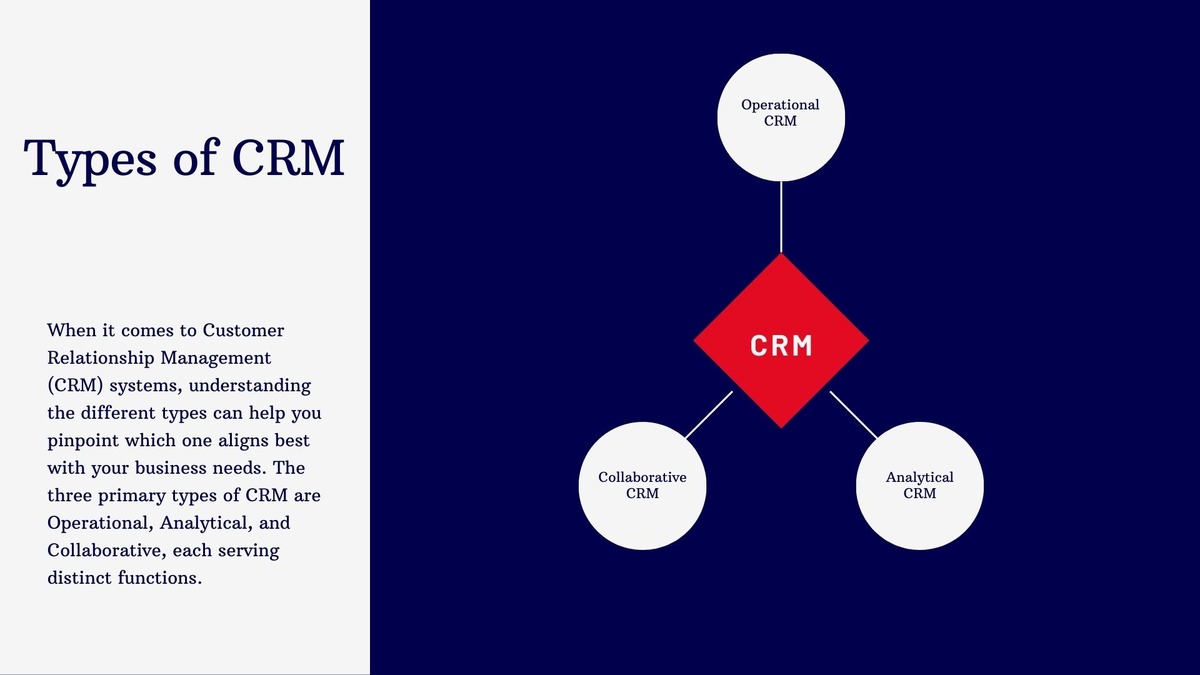
When it comes to Customer Relationship Management (CRM) systems, understanding the different types can help you pinpoint which one aligns best with your business needs. The three primary types of CRM are Operational, Analytical, and Collaborative, each serving distinct functions.
-
Operational CRM:
Operational CRM focuses on streamlining business processes. It automates key functions such as sales, marketing, and customer service. By doing so, it ensures that customer interactions are smooth and effective. For example, sales automation helps manage the pipeline, marketing automation handles campaign execution, and service automation addresses customer support issues promptly. If your business faces bottlenecks in these areas, an Operational CRM may be the perfect fit.
-
Analytical CRM:
Analytical CRM aims to analyze customer data to provide valuable insights. This type of CRM uses data mining, pattern recognition, and other analytical tools to offer in-depth information about customer behavior, preferences, and trends. Businesses can make informed decisions thanks to the robust data analytics these CRMs offer. Analytical CRM is ideal for companies looking to harness data for strategic advantage, improving customer targeting, and personalized marketing efforts.
-
Collaborative CRM:
Collaborative CRM emphasizes interaction and coordination among various departments, such as sales, marketing, and customer service, and even extends to external stakeholders like suppliers and distributors. These systems are invaluable for businesses that require seamless communication channels to provide a unified customer experience. If your business operates in a manner that requires inter-departmental coordination for achieving customer satisfaction, a Collaborative CRM is worth considering.
Understanding these types of CRM systems can greatly aid in making an informed decision, setting you on the path to improved customer relationships and business efficiency.
Essential Features to Look for in a CRM
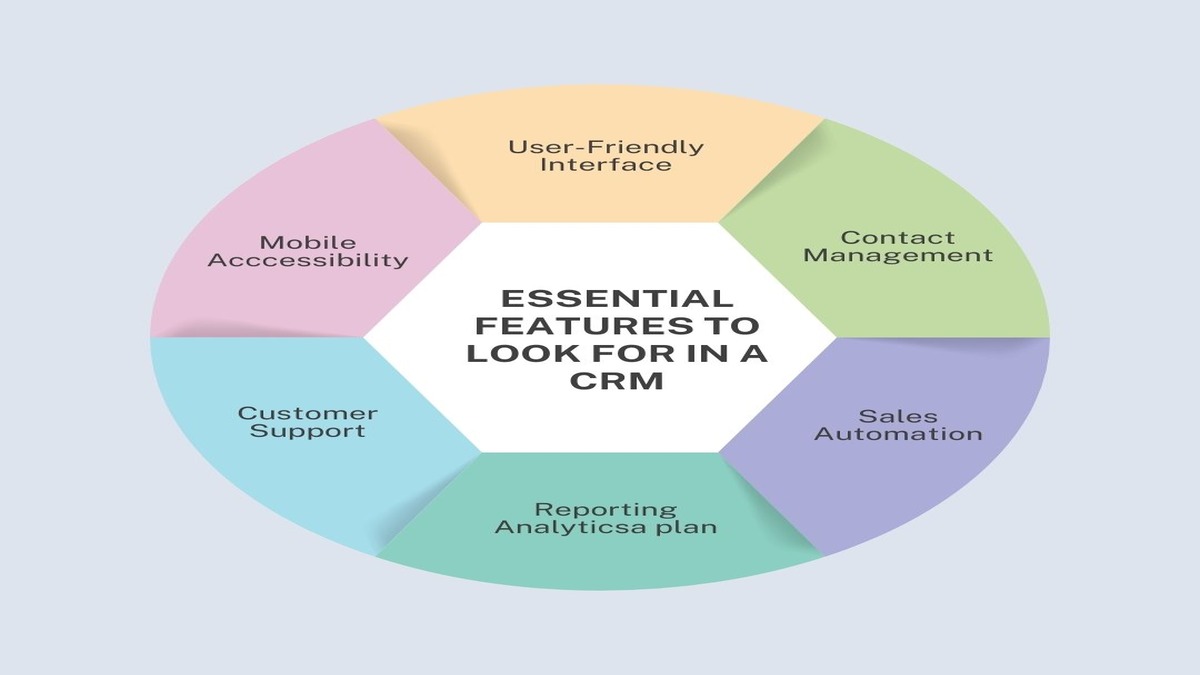
Choosing the right Customer Relationship Management (CRM) system is crucial for any business aiming to streamline operations and improve customer interactions. Here are some essential features to consider when selecting a CRM:
- User-Friendly Interface: Your team will be using the CRM daily, so it’s essential to choose one that’s easy to navigate. Look for intuitive dashboards and customizable options to suit your workflow.
- Contact Management: At its core, a CRM should effectively manage your contacts. Ensure the system can store detailed customer information, track communication history, and segment customers based on various criteria.
- Sales Automation: Automating repetitive tasks like follow-up emails, task assignments, and lead tracking can save time and reduce errors. A robust CRM should help streamline your sales process from lead generation to closing deals.
- Integration Capabilities: Your CRM should easily integrate with other tools and platforms you already use, such as email marketing software, social media platforms, and accounting systems. This ensures a seamless flow of information across all of your business applications.
- Reporting and Analytics: Data-driven decisions are key to business success. Choose a CRM that offers comprehensive reporting and analytics features. Customizable reports and dashboards can help you gauge performance, understand customer behavior, and identify trends.
- Customer Support: A good CRM system should come with a reliable support team. Look for providers that offer various support channels, such as live chat, phone support, and extensive documentation.
- Mobile Accessibility: In today’s fast-paced business environment, having a mobile-accessible CRM can be a game-changer. Ensure the CRM offers a mobile app or is fully functional on mobile devices.
By focusing on these key features, you’ll be well on your way to selecting a CRM that aligns with your business needs and enhances your customer relationships.
How to Choose the Right CRM for Your Business:
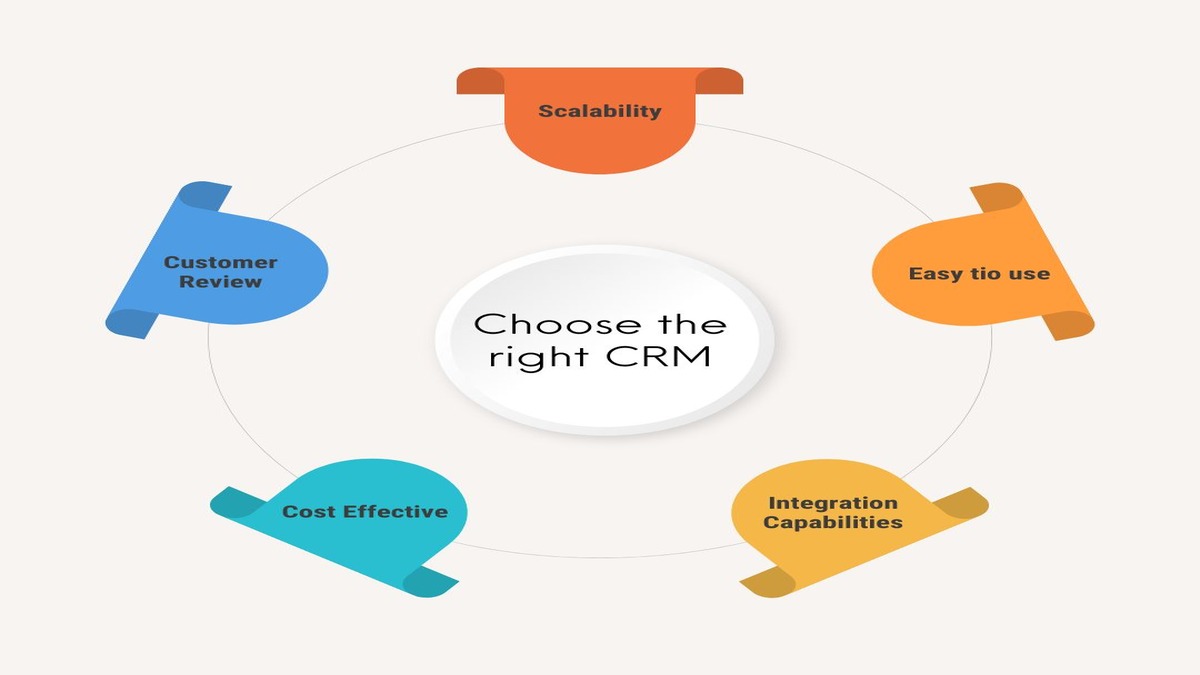
Choosing the right Customer Relationship Management (CRM) tool is crucial for boosting your business’s efficiency and customer satisfaction. Start by assessing your specific needs. Do you require robust analytics or a tool that excels in customer interaction? Understanding your key requirements will help you narrow down your options significantly.
- Scalability: Next, consider the scalability of the CRM. As your business grows, your CRM should be able to grow with it. Look for features like customizable dashboards, modular add-ons, and the ability to handle increased data loads. This ensures you won’t outgrow the system anytime soon.
- Ease to Use: Ease of use is another essential factor. A CRM that’s difficult to navigate can hamper productivity. Opt for a platform with an intuitive user interface and comprehensive training resources. Many CRMs offer trial periods; take advantage of these to ensure your team can comfortably adapt to the new tool.
- Integration Capabilities: Integration capabilities are equally important. Your CRM should seamlessly integrate with your existing tools—be it email marketing platforms, accounting software, or social media channels. This ensures all your data flows smoothly from one system to another, reducing manual work and the risk of errors.
- Cost Effective: Cost is a practical consideration. Pricing models vary, from per-user fees to flat-rate pricing. Evaluate what fits your budget but also weigh it against the features and benefits you’ll receive. Sometimes, investing a bit more upfront can lead to significant returns in efficiency and customer satisfaction.
- Customer Reviews: Finally, check customer reviews and ask for recommendations from similar businesses. Real-world experiences can provide invaluable insights into the CRM’s performance and reliability. Choosing the right CRM involves careful evaluation, but the rewards of improved customer relationships and streamlined operations are well worth the effort.
Read More: Top 10 Popular SaaS Marketing Blogs in 2024

